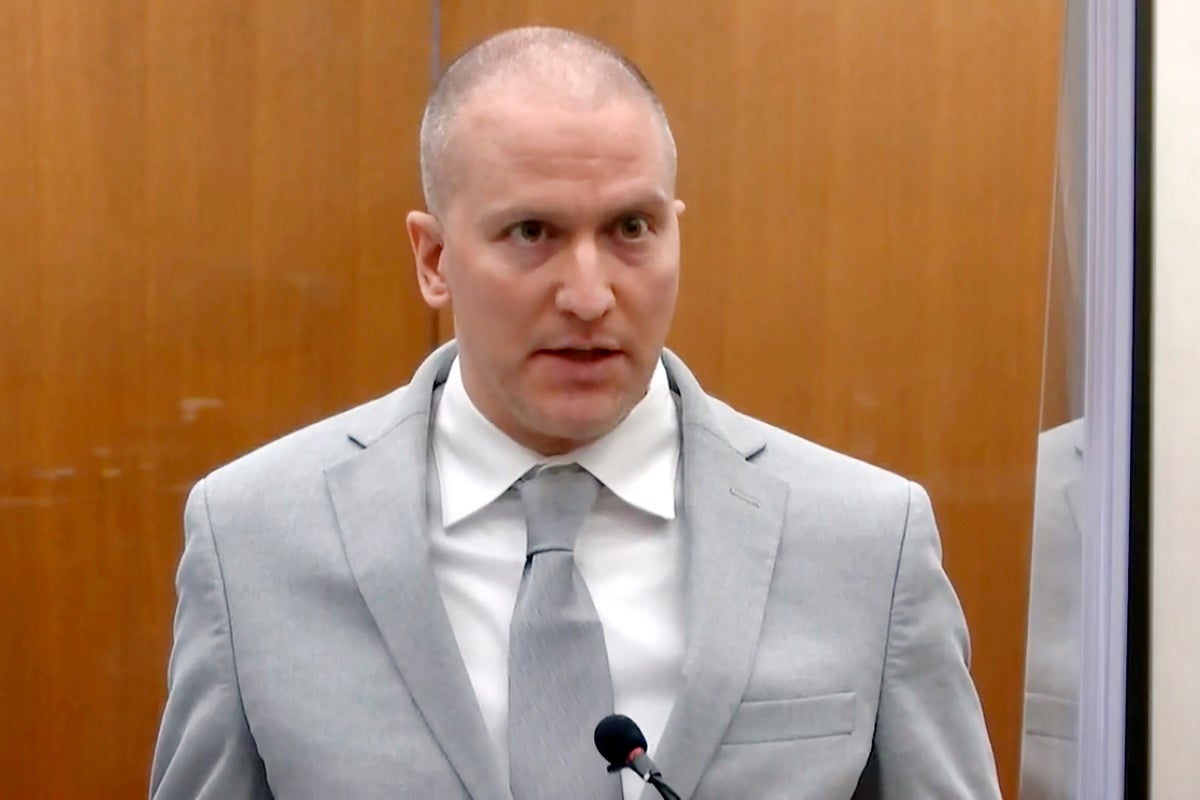
The former Minneapolis police officer who murdered George Floyd in 2020 will appeal his conviction to the US Supreme Court, according to his attorneys.
An appeal from Derek Chauvin, who was sentenced to more than 20 years in prison after a second-degree murder conviction, was rejected by Minnesota’s highest court in a one-page document on 18 July.
Now, Chauvin’s attorneys will ask the US Supreme Court – which declines a vast majority of appeals – to review the lower court’s decision, according to a statement from attorney Gregory M Erickson on 19 July.
In April 2021, nearly one year after Chauvin was filmed with his knee on Floyd’s neck for more than nine minutes as he gasped for air, a jury found Chauvin guilty of second-degree unintentional murder, third-degree murder and second-degree manslaughter. He was sentenced to 22-and-a-half years in prison.
Chauvin later pleaded guilty to federal charges of violating Floyd’s civil rights and was sentenced to 21 years in prison, a sentence to run concurrently with his state sentence.
The death of Floyd, who is Black, under the knee of a white police officer galvanized an international demand for racial justice and an end to police violence. His murder also prompted separate investigations from the Minnesota Department of Human Rights and the US Department of Justice, which discovered a “disturbing” pattern of civil rights abuses within the Minneapolis Police Department.
Chauvin is currently held at a medium-security federal prison in Tucson, Arizona, according to records with the Federal Bureau of Prisons.
In appeals to Minnesota courts, attorneys have argued that the publicity surrounding the case and threats of violence in the event of an acquittal had deprived Chauvin of his right to a fair trial.
Derek Chauvin is pictured in Minnesota court in 2021 on trial for the murder of George Floyd— (AP)
Attorneys also wanted the state appeals court to review whether the court venue should have been changed, and if the jury should have been sequestered and the trial delayed because of protests and media coverage.
The appeal to the lower appeals court also accused state prosecutors of failing to properly disclose evidence and prepare prosecution witnesses.
Last month, the office of Minnesota’s attorney general wrote in a filing to the state Supreme Court that the court should let the conviction stand.
“Petitioner received a fair trial, and received the benefit of a fulsome appellate review,” prosecutors wrote at the time. “It is time to bring this case to a close.”







